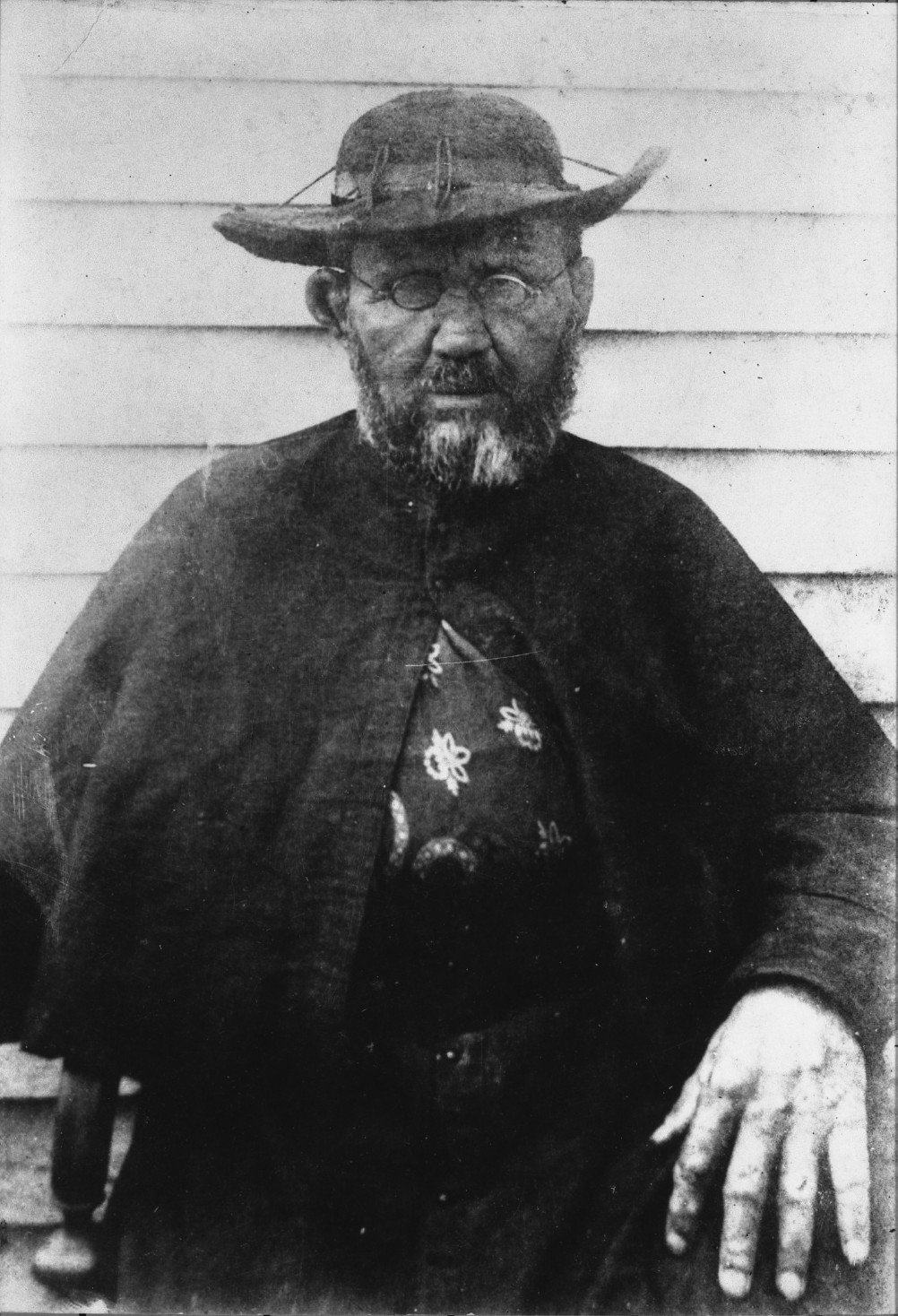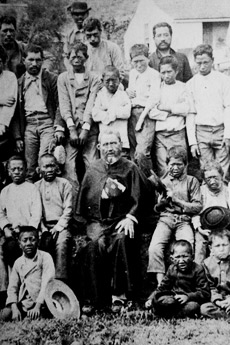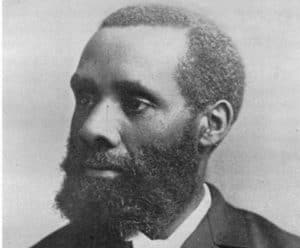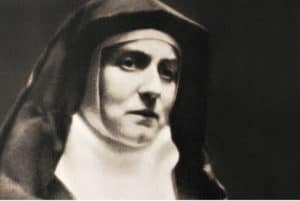(1840-1889)
When God chose to identify with his creation by sending his son to live among us, he sent us love incarnate. When Christ entered the heart of Joseph de Veuster, that same dynamic went to work, and de Veuster based the rest of his life on incarnating the love of Christ.
De Veuster was born in Belgium in 1840, the seventh of eight children. His father wanted him to take over the family business of farming, but the young man felt a call to the church, and at 18 he joined the Sacred Hearts Community, where he began his study for the priesthood. At his request, the community sent him to Hawaii as a missionary in 1864, where he was ordained in the Cathedral of Our Lady of Peace in Honolulu and immediately adopted the name Father Damien.
Colonization had brought to Hawaii diseases previously unknown there, such as influenza, syphilis, and Hansen’s disease, also known as leprosy. King Kamehameha IV had created a colony for lepers on the island of Molokai, hoping that by isolating them he could keep the disease from spreading. Accounts from Molokai speak of the smell of decaying flesh and of the cries of those dying on the beach, having been kicked out of the huts by other lepers. Young girls sent to Molokai were attacked and preyed upon by other lepers, who literally had to fight each other to survive. The government had planned to care for them there but was overwhelmed by the appalling conditions.
It was to this lifestyle of chaos and misery that Father Damien was drawn. When he moved to Molokai in 1873, he was presented to the colonists by Bishop Maigret as “one who will be a father to you, and who loves you so much that he does not hesitate to become one of you; to live and die with you.” And this is exactly what Father Damien became to the lepers of Molokai. He built homes for the people, made coffins for the dead, and grew food for the hungry. He worked tirelessly among a people who were not his own and who had an illness that he did not have.
In addition to providing care for the leprosy victims, Father Damien worked as an activist and social reformer, advocating on their behalf. Thanks to his dogged efforts, the Hawaiian government eventually agreed to send much-needed supplies to Molokai. He also used his influence with the Church of Rome to garner attention for the lepers. An official biography of Father Damien states, “He was not afraid to badger the Church for help.” Because of his determination, the Molokai community received worldwide attention, and supplies arrived from around the world.
One evening, when Father Damien went to soak his feet in a pot of hot water, he found he was unable to feel the heat. He had contracted the disease of the people he served. A biography of this great man states, “Over the years he had done nothing to separate himself from his people. He dipped his fingers in the poi bowl shared with other patients. He shared his pipe. And he did not always wash his hands after bandaging open sores.” He had so wanted to relate to his people that he allowed nothing to separate him from them. Father Damien had truly become one of them. He died on April 15, 1889, at the age of 49.
“Over the years he had done nothing to separate himself from his people. He dipped his fingers in the poi bowl shared with other patients. He shared his pipe. And he did not always wash his hands after bandaging open sores.”
This is also the story of God relating to his people. Paul, in a letter to the church in Philippi, wrote:
Think of yourselves the way Christ Jesus thought of himself. He had equal status with God but didn’t think so much of himself that he had to cling to the advantages of that status no matter what. Not at all. When the time came, he set aside the privileges of deity and took on the status of a slave, became human! Having become human, he stayed human. It was an incredibly humbling process. He didn’t claim special privileges. Instead, he lived a selfless, obedient life and then died a selfless, obedient death—and the worst kind of death at that—a crucifixion (Phil. 2:5-8, The Message).
In June 1995 Father Damien was beatified by Pope John Paul II. In December 2005 he was voted the greatest Belgian of all time. On April 15 of every year, while most US citizens are thinking about the deadline for filing federal income taxes, Hawaiians remember Father Damien on the anniversary of his death. As you think about the incarnation, think of Father Damien and his gift to the lepers. Think of God revealing himself in human form through Jesus the Christ, and ask yourself the question, “How will I incarnate God to others today?”
Monty Stewart is the pastor of Kona Church of the Nazarene, a multicultural church in Kailua-Kona, Hawaii.


